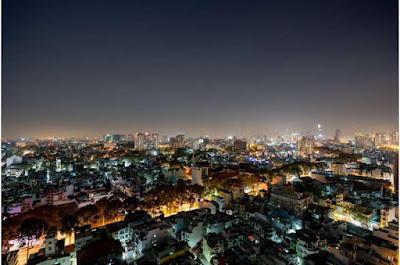by Alejandro Escudé
 | ||
|
There is nowhere on the Earth left for the human being.
We’re too blue and too bright, we (how to put this?)
destroy the night. It comes to me now, the cruise ship
I was on, northern Mediterranean, lightning-streaks
across the dining room windows as we ate, Titanic scene,
the ship listing to and fro. I went out to see it, to take in
the storm and the ship’s lights were laying like a mermaid’s
gauzy hair across the tossing waves. I’d be shamed
by many others simply for recounting this trip, mocked
for excursions, games, scheduled meals. I’d think
of Odysseus in Sicily, duping the Cyclops, hiding his
men beneath the curly warmth of sheep. Sometimes,
I also want to hide that way from the weaponizing shame
humanity turns against itself—more lethal than nuclear
weapons, toxic as a leaky oil tanker. We recognize
the firelight and so does the snake, the shoreline plover,
but we choose the incandescence of daylight at night.
I have been in the center of my worldly city, lost in
absolute darkness, unable to walk my dog, a block
away the foraging lights of shark-like airliners taking
off into the gridded coordinates of the briny sky.
Shall I leap back into my Neanderthal skin yet eschew
the Sahara rat for the naked leaf? Shall I bore into
the ground, further and further, as the rich climb
diamond-encrusted staircases into Olympus-sized
homes? My children are not guilty of the bright light!
My planet is not above me, and it isn’t below me,
and it’s certainly not flat. I eat LED light bulbs for
a midnight snack, looking out over the shellshocked
tapestry, basking in the sky glow, so I may light
the places within me that don’t need to be seen.
Alejandro Escudé published his first full-length collection of poems My Earthbound Eye in September 2013. He holds a master’s degree in creative writing from UC Davis and teaches high school English. Originally from Argentina, Alejandro lives in Los Angeles with his wife and two children.